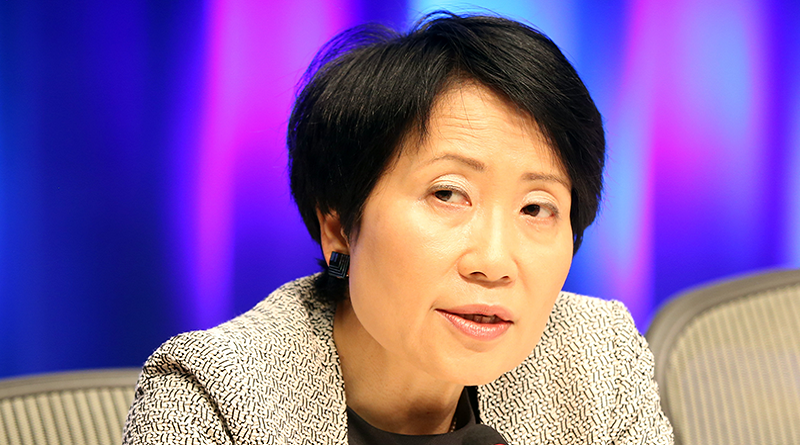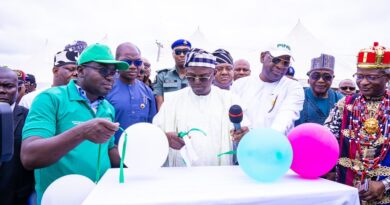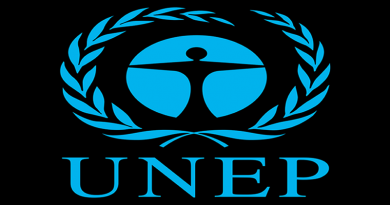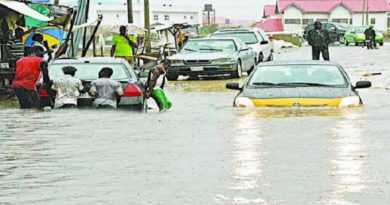GEF Council agrees on $700m for urgent environmental action in 72 countries
The Global Environment Facility’s governing body, meeting remotely, has agreed on $700 million for projects and programs to help developing countries keep advancing urgent environmental priorities through and beyond the coronavirus pandemic. The new and expanded programming under the GEF-7 replenishment cycle spans oceans, chemicals, land use, wildlife trafficking, green shipping, and climate change adaptation, and the LDCF work program focuses on helping vulnerable countries and communities continue to build their climate resilience. The GEF Council also selected a new CEO and Chairperson, Carlos Manuel Rodriguez, who will take over from Naoko Ishii in August.
In a boost to international environmental action at an uncertain time for the world economy, the Global Environment Facility’s governing body has agreed on $700 million for projects and programs that will help developing countries protect marine biodiversity, fight wildlife trafficking, tackle dangerous uses of mercury, and fortify defenses against climate change in the agriculture and fisheries sectors, in basic services such as drinking water, and other areas.
The GEF Council, meeting remotely due to the coronavirus pandemic, endorsed the multilateral trust fund’s $645 million proposed work program as well as $60 million in projects from the GEF-managed Least Developed Countries Fund which focuses on climate resilience in the world’s poorest countries.
Delegates across 17 time zones, from Mexico to New Zealand, discussed the urgency of continuing to work together to address environmental challenges to ensure there is no backsliding on global priorities in a time when many governments are rightly focused on managing public health crises and related economic shutdowns. They also reached consensus on a new administrative budget for the GEF to maintain business continuity throughout the coronavirus crisis period.
It was the last GEF Council meeting presided over by Naoko Ishii, whose second term as CEO and Chairperson of the 183-member body ends in July.
During her tenure, the GEF broadened its approach to tackle the underlying drivers of environmental degradation in addition to their symptoms, with a focus on the transformation of key economic systems through integration, new Impact Programs, and multi-stakeholder partnerships that tackle pressures on nature from human systems.
“I am so thankful to you, the Council, GEF families and partners, and the staff of our GEF Secretariat, for shifting our focus towards the root causes of environmental degradation, and to the central importance of system-wide changes,” she told the virtual session. “Many institutions have successful projects. But few institutions manage to move from a project logic to a system logic, let alone have the courage of catalyzing systems-wide change. That is what we have been trying to do together at the GEF – identifying the key ingredients of system-wide change and investing in those at scale. I believe we have made good progress – but we have not arrived at the final station yet.”
On the first day of the Council meeting, Costa Rican Environment and Energy Minister Carlos Manuel Rodriguez was named the GEF’s next CEO and Chairperson for a four-year term beginning August 1, 2020.
In a document prepared for the Council meeting, the GEF Secretariat outlined the ways the coronavirus pandemic has informed the trust fund’s approach, including an expansion of efforts to confront wildlife trading and to reduce the conflicts between human systems and nature that have brought people and wildlife dangerously close together.
The new work program, which spans 72 countries, is expected to mobilize $3 billion in co-financing from other sources and directly benefit 12 million local people in project areas. It includes the expansion of three existing programs – the Global Wildlife Program, the Food Systems, Land Use and Restoration (FOLUR) Impact Program, and the Global E-Mobility Program – to new countries, extends funding support to the GEF Small Grants Programme, and launches two new programs: Common Oceans and GOLD+.
The Common Oceans program, led by FAO and co-implemented by UNDP and UNEP, aims to improve the sustainable management of 12 million hectares of marine protected areas beyond national jurisdiction, and support moving 943,000 tons of several globally over-exploited fish species to sustainable levels. This program will address the sustainable use and conservation of biodiversity in areas beyond national jurisdiction, which are subject to multiple threats including over-fishing, pollution, habitat loss, degradation, and climate change impacts.
Another new program, GEF GOLD+, will support the elimination of mercury from the artisanal and small-scale gold mining sectors in developing countries through formalization, access to finance and markets, and access to mercury-free gold mining technologies. This program extends the planetGOLD program that was approved in the GEF-6 replenishment cycle and will be managed by Conservation International with the support of UNEP, UNDP and UNIDO.
The latest GEF work program also includes four blended finance projects, which aim to attract private investment where it is critically needed. These include a green shipping platform to retrofit shipping fleets for increased fuel efficiency; a forest conservation and climate-smart agriculture fund designed to de-risk local financing in developing countries; a wildlife bond that will unlock institutional investor financing for the conservation of the black rhino in South Africa; and a livelihood carbon fund that will generate returns to investors through certified carbon offsets.
The Council decided to launch a working group of interested Council members and GEF Secretariat staff members to support an updated private sector engagement strategy and related implementation plan, which would be discussed and considered at the next GEF Council meeting.
In the second and final day of their meeting, Council members also approved $60 million in projects from the GEF-managed Least Developed Countries Fund. The projects are focused on helping vulnerable countries and communities continue to build their climate resilience, which will be particularly relevant to address the impacts of the COVID-19 crisis. Those projects across eight countries – Burkina Faso, Djibouti, Haiti, Lao PDR, Liberia, Mauritania, Tanzania, and Yemen – are expected to generate or increase income and sustain livelihoods, and also tackle fragility and security concerns through concrete adaptation measures and policies. They will mobilize $257 million in co-financing, which is not required for the LDCF, from other sources. The Council also approved the business plan and budget for the LDCF and Special Climate Change Fund (SCCF) for the next fiscal year. Read the chair’s summary.
Juha Uitto, director of the GEF’s Independent Evaluation Office also presented to the Council an approach paper to conduct the Seventh Comprehensive Evaluation (OPS7) of the GEF.




